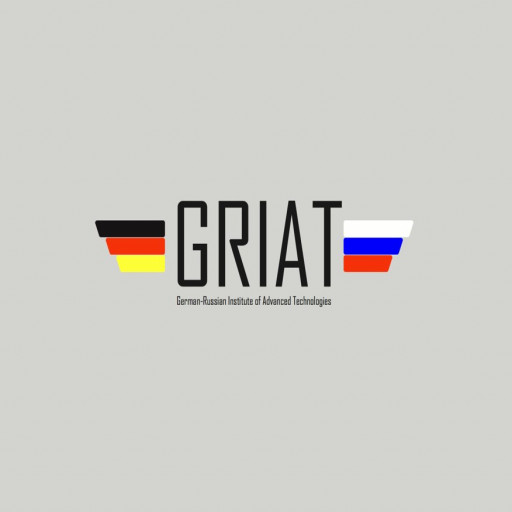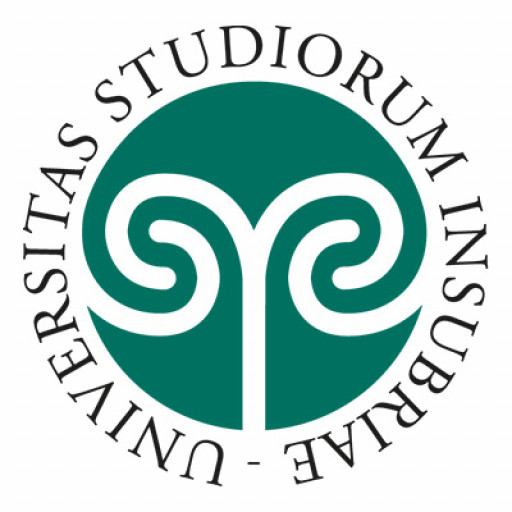Photos of university / #vubrussel
The Bachelor's Degree in Communication Studies: New Media and Society at the Free University of Brussels offers students a comprehensive understanding of contemporary communication processes, with a particular focus on the role of new media within societal contexts. This program explores the dynamic interactions between digital technologies, media content, and societal structures, preparing students to critically analyze the influence of emerging communication platforms on culture, politics, and social behavior. Through a balanced curriculum that combines theoretical frameworks with practical skills, students will gain expertise in areas such as digital communication, media analysis, social networking, and information dissemination. The program emphasizes the development of critical thinking, media literacy, and research competencies, enabling graduates to contribute effectively to fields such as media production, communication consulting, digital marketing, and policy analysis. Throughout their studies, students will engage with a variety of multimedia formats and tools, fostering innovative communication strategies suited to today’s rapidly evolving digital landscape. Additionally, the program encourages active participation in internships and collaborative projects, providing valuable real-world experience. By the end of the program, graduates will have a deep understanding of the societal implications of new media, along with the skills necessary to navigate and influence the digital communication environment professionally. The degree aims to equip students with the knowledge and competencies required for successful careers in media organizations, public relations firms, technological innovation hubs, and academia, or to pursue further postgraduate studies. Overall, the Communication Studies: New Media and Society program at the Free University of Brussels is designed to cultivate insightful, adaptable, and ethically responsible communication professionals ready to address the challenges and opportunities of the digital age.
The Communication Studies: New Media and Society program at the Free University of Brussels offers a comprehensive exploration of the evolving landscape of communication in contemporary society, with a particular focus on new media technologies and their societal implications. Throughout this program, students will delve into the theoretical frameworks that underpin media studies, examining how digital communication platforms, social media, and emerging technologies impact social interactions, cultural practices, and power dynamics. The curriculum is designed to combine interdisciplinary perspectives, incorporating insights from sociology, media studies, political science, and information technology to provide a holistic understanding of media phenomena.
Students will engage with core topics such as the history and evolution of media, digital communication strategies, and the role of media in shaping public opinion and democratic processes. They will also analyze the ethical and legal challenges associated with new media, including issues of privacy, misinformation, and digital rights. Practical skills are emphasized through hands-on training in content creation, media analysis, and data visualization, equipping students to navigate and critically assess the digital media environment.
The program encourages active participation in research projects, internships, and collaborative initiatives with media organizations, providing valuable real-world experience. Graduates will be prepared for careers in media analysis, digital communication consultancy, content creation, or further academic research. By examining the societal impacts of new media, the program aims to foster responsible and innovative media practitioners who can contribute thoughtfully to the digital age. With a strong emphasis on critical thinking and analytical skills, students will be well-equipped to understand and address the complex challenges of communication in the 21st century.
Program requirements for the Master's degree in Communication Studies: New Media and Society at the Free University of Brussels typically include a relevant undergraduate degree, such as Communication Sciences, Media Studies, Sociology, or related fields. Applicants are generally required to demonstrate proficiency in English through standardized tests like TOEFL or IELTS, unless they have completed prior studies in English-medium institutions. The application process often necessitates submission of a motivation letter, curriculum vitae, and academic transcripts. A minimum GPA or equivalent academic achievement may be expected, depending on the competition level of the program. Additionally, some programs might require letters of recommendation from academic referees or professional contacts to assess the applicant’s suitability and motivation for advanced study in new media and societal contexts.
Prospective students should also be prepared for an interview or online assessment as part of the admission process to evaluate their research interest and practical knowledge in communication and media topics. The curriculum usually includes core courses in media theory, digital communication, research methods, and societal impact of new media technologies, along with elective courses that allow specialization in areas such as social media dynamics, media policy, and digital culture. Teaching methods often combine lectures, seminars, project work, and practical assignments to develop both theoretical understanding and applied skills. A thesis or research project is generally required to complete the degree, emphasizing independent investigation into a relevant topic in new media and society. Overall, applicants should demonstrate strong analytical, critical thinking, and communication skills, along with a genuine interest in the evolving landscape of digital media and its societal implications.
The financing of the Communication Studies: New Media and Society program at the Free University of Brussels is primarily subsidized by the Belgian government, which supports tuition fees for both Belgian and international students through various funding mechanisms. Students are required to pay tuition fees, which vary depending on their student status, residence, and scholarship eligibility. The university offers different categories of fees: for Belgian students, the tuition is generally lower due to national subsidies; international students may pay higher fees unless they qualify for specific scholarships or exchange programs.
The university also provides a range of scholarships and financial aid options for deserving students, including merit-based grants, need-based assistance, and scholarships for students from specific regions or backgrounds. These financial aids aim to make education accessible to a diverse student population. In addition, students often seek financial support from external sources such as Erasmus+ grants, private foundations, and government funding programs dedicated to higher education.
Part-time work opportunities are also available on or near campus, helping students cover living expenses and additional costs associated with studying abroad. The program encourages students to explore employment during their studies, with many local companies and media organizations providing internships and trainee positions that sometimes include stipends. Furthermore, some students finance their studies through student loans available via Belgian financial institutions or international credit providers, which offer favorable repayment terms for students.
The university’s cooperation with industry partners and media organizations often results in sponsorships and funding opportunities for outstanding students through competitions, internships, and collaborative projects. Additionally, the European Union and Belgian government occasionally fund research projects and program-specific initiatives, which can indirectly support students through enhanced program resources and research opportunities. Overall, the financing structure of the Communication Studies: New Media and Society program combines institutional subsidies, student contributions, external scholarships, and part-time employment options, facilitating access to higher education and fostering an environment conducive to academic and professional development.
The Communication Studies: New Media and Society program at the Free University of Brussels (Vrije Universiteit Brussel - VUB) is designed to provide students with a comprehensive understanding of the evolving landscape of media, communication technologies, and their impact on society. This program emphasizes the critical analysis of new media, digital communication, and their role within social, cultural, and political contexts. Students explore how digital media reshape communication practices and influence societal structures, acquiring knowledge about theoretical frameworks and practical skills essential for careers in media, communication consultancy, digital marketing, journalism, and more. The curriculum includes modules on media theory, digital culture, social media analysis, communication policy, and research methods. Throughout the program, students are encouraged to develop analytical thinking, technical proficiency, and ethical awareness regarding digital media usage and production. The program also offers opportunities for hands-on experiences through projects, internships, and collaborations with media organizations. Graduates are well-equipped to engage critically with media texts, produce digital content, and analyze media trends, positioning themselves effectively for the dynamic job market related to communication and new media. The program is taught in English, attracting both Belgian and international students with an interest in media studies, societal change, and digital innovation. The faculty comprises experts in media theory, communication technology, and social sciences, ensuring a rigorous academic environment. The program duration is typically one or two years, depending on the student's prior academic background, with options for specialization and research. Graduates of this program gain a deep understanding of how new media influence societal development and are prepared to contribute meaningfully within academic, professional, and policy-making spheres related to media and communication.









